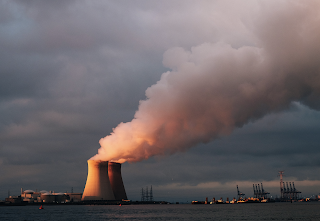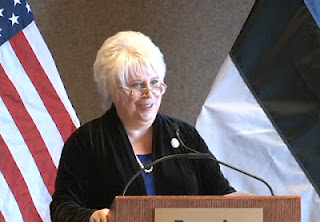A May 2 UIUC News Bureau article discussed EUC-affiliated faculty member Nancy Benson's upcoming International Reporting class, which heads to Turkey on May 15. The course, which gives students the opportunity to serve as foreign correspondents, is funded primarily from a Social Science Research Council grant, the result of a collaboration between the European Union Center, the Center for Global Studies, and Professor Benson. Check out the full article below or by clicking here.
CHAMPAIGN, Ill. — Four classes, four continents.
About every two years, a small class of University of Illinois
journalism students under the supervision of professor
Nancy Benson reports from a different part of the world, taking a two-week turn as foreign correspondents.
In 2005 it was Peru. In 2007, China. Then Romania, with a stopover in Italy, in 2009.
For this year’s all-female crew of nine, the destination is Turkey. They arrive in Istanbul on May 15. Readers may be able to follow some of their work through the International Herald Tribune, as well as later on WTTW-Channel 11 (PBS) in Chicago.
Their trip may be the most timely of any so far. The “Arab Spring” erupted just a year and a half ago, and many in the Middle East have looked to Turkey as a model for mixing Islam and democracy.
Turkey’s neighbor Syria has been immersed in violence, the government having killed thousands of civilians, and refugees have fled to Turkey as a result. (The class intends to spend time at the Turkey-Syria border, interviewing refugees and looking at the impact of the growing number of refugee camps on Turkish border towns.)
And in post-9/11 America, Muslims continue to be seen often as only “Arabs who want to do us harm,” Benson said.
In fact, unlike previous classes, Benson said, this spring’s version of Journalism 470 (International Reporting) is as much about a religion as a country. The main funding comes from the Social Science Research Council, in a grant focused on raising awareness among journalism students about Islam and the portrayal of Muslims.
Turkey was chosen because it is considered a safe place to travel, a focus of global attention, and a crossroads between the West and the Islamic world, Benson said.
All of the students’ efforts, including blog posts and stories, will be available
online and can be followed through the Twitter handle
@uiglobalreports.
The students on this reporting trip also will benefit from the help of two professional journalists traveling with them for all or part of the trip.
Susanne Fowler, an editor with the International Herald Tribune who has worked in Turkey, will join them at the start of the trip. Benson knows her from when they were reporters in Chicago.
Halfway through the trip, they also will be joined by Ash-har Quraishi, a former CNN bureau chief in Pakistan who now is a correspondent for “Chicago Tonight,” broadcast on WTTW. Quraishi, a Chicago native, is a 1997 Illinois journalism graduate and a former student of Benson’s.
“He’s a very valuable alum in this particular situation,” given that he is an American Muslim with experience as a foreign correspondent in an Islamic country, and yet young enough that students might relate to his experience, Benson said.
Students will have the opportunity to blog for the Herald Tribune website, though there’s no guarantee of what will be published, Benson said. “It just depends on how well they report a story, and whether it’s a story that the (paper) wants.”
For WTTW, two students’ story ideas have been selected for development, but likewise there’s no guarantee they will result in something for broadcast, she said.
Benson would like to be able to say she planned this year’s class in response to the “Arab Spring,” but that’s not the case. Picking a destination is often a “backward process,” determined mostly by funding, she said – though she also works to spread the destinations around and avoids developed countries.
“I’m interested in going where the action is happening now, where the country is still developing, where there are lots of important issues that are still being decided,” she said.
What that means, however, is “starting from scratch” every time, Benson said – new territory, new issues, new contacts.
In preparing her students, Benson brings in experts from the campus and elsewhere to discuss the country they will be traveling to and the issues they might be dealing with. For this trip, they also visited the Central Illinois Mosque, near the edge of campus in Urbana, to observe a prayer service and hear a panel discussion.
Benson always travels to the country ahead of time, usually over spring break a couple months before the trip. She finalizes accommodations and travel plans, but also contacts potential sources, and arranges meetings with academic experts and foreign journalists.
She also lines up journalism students in the country, asking them to work with her students on stories, as translators and to provide a different perspective. That may be more difficult this time, she said, because of the timing of Turkish students’ exams.
Even with all this preparation, however, the students will still be dropping into a foreign place and will still find plenty of challenges, Benson said. Their original story may not work out as planned. (They’re urged to have a plan B and C.) They may face significant roadblocks. And they’ll have to work together, even while working on their individual stories.
“This experience is so intense that they really do bond in ways that you don’t in a regular classroom setting,” Benson said.

Dateline Turkey: Illinois students get a turn as foreign correspondents






















